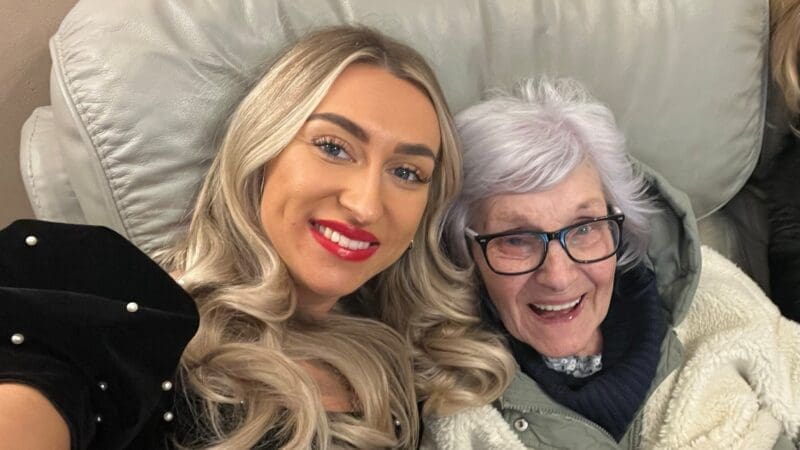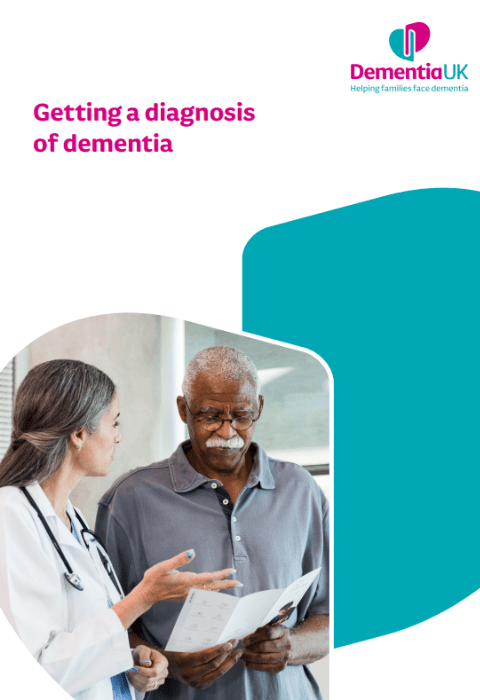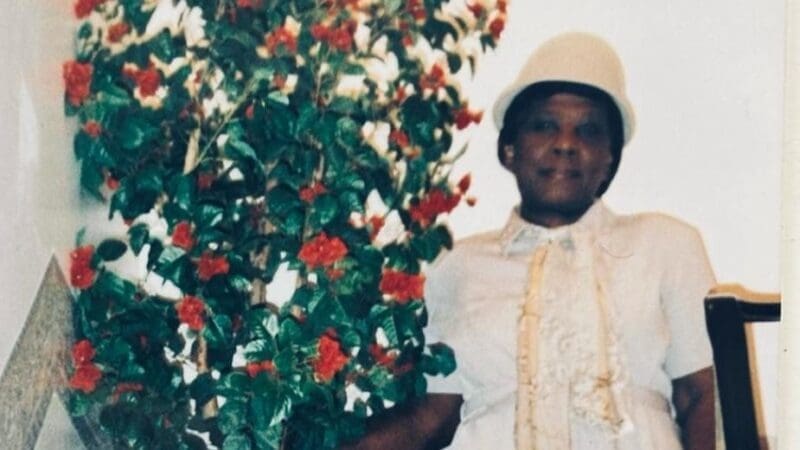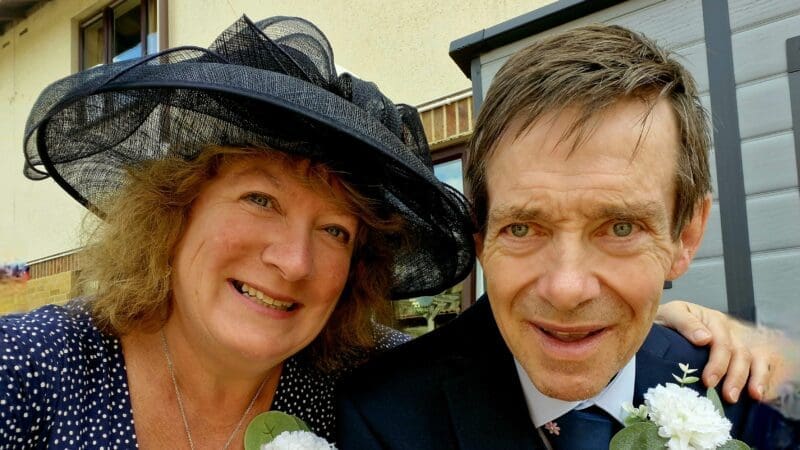
Nat’s story – “Being a young carer can be lonely”
Nat reflects on her experience of being a young carer and the support she received from the Nationwide dementia clinic.
If you think that you or someone close to you may have symptoms of dementia, it can be hard to know what to do. You might not know who to talk to, how to start the process of getting a diagnosis or what support is available. On this page, our dementia specialist Admiral Nurses explain how to recognise the common symptoms, why it is important to get diagnosed, and what to expect when seeking a dementia diagnosis.
Many different conditions can mimic the early signs of dementia, including infections, delirium, vitamin deficiency, menopause, depression, anxiety and diabetes. These conditions are often treatable, so it is important to visit a GP for tests to identify any potential underlying causes.
If these conditions have been ruled out and there are still concerns, the GP may refer the person to a specialist memory assessment team for further tests.
Getting an accurate diagnosis means the person can access treatment and support to help them manage their condition.
An early diagnosis of dementia can help the person and their family to understand what is happening. This includes finding out what type of dementia they have, why the changes are happening, and what can be done to manage them. It also enables the person and their family to access support, have conversations about how to live as well as possible with the diagnosis, and start planning for the future.
While dementia can’t be reversed, for some forms of the condition (especially Alzheimer’s disease), medication may help to slow the progression and ease some of the symptoms. These medications are usually most effective if the person starts taking them in the early stages, so getting a prompt diagnosis may mean they get more benefit from their treatment.
Additionally, an early diagnosis means support can be put in place – for example, the person may be able to access certain financial benefits, support groups and help from Social Services to identify their care needs, as well as support at work if they are still in employment.
The early symptoms of dementia will depend on the type the person is diagnosed with but typically include changes in:
However, all of these can be caused by other conditions, such as depression, an underactive thyroid, vitamin B12 deficiency or medication side effects, so experiencing these symptoms doesn’t mean a person definitely has dementia.
If you are concerned about possible symptoms of dementia in yourself or someone close to you, make an appointment to see the GP, as the sooner a diagnosis is made, the sooner treatment and support can be put in place. It might be a good idea to book a double appointment to make sure there’s time to discuss everything.
In an initial appointment, the GP should ask the person about:
It’s helpful if a partner, relative or friend goes to the appointment too, as they may have noticed changes that the person themself hasn’t.
The GP should also briefly test the person’s memory and cognitive abilities. This might include asking them to:
In addition, the doctor should do a physical examination and arrange blood and urine tests to rule out other possible causes of the person’s symptoms.
After the initial appointment, if the GP suspects the person may have dementia, they should refer them to a specialist for further assessment. This could be:
The person may be seen in a memory clinic, a hospital or a community setting like a GP practice.
Bear in mind that although dementia may be diagnosed by a doctor who specialises in old age, it can also affect younger people. In people aged 65 or under, it’s referred to as young onset dementia.
Some people with signs of dementia may not want to see their GP. They may not recognise that anything has changed, be in denial about their symptoms, or be afraid of getting a diagnosis and its impact on their life and those around them (for example, whether they will have to stop driving).
If someone is reluctant to see their GP, you could try explaining the benefits of getting a diagnosis. Sometimes, asking another family member or close friend to talk to the person may help – they may be more willing to take advice from someone who is slightly removed from the situation.
If the person simply refuses to go to the GP, you can contact the surgery by phone, email or letter to explain the situation. Mention the changes you have noticed, how they are affecting the person, and any ways in which these changes may be putting them at risk. The GP will not be able to breach the person’s confidentiality, but they should consider the information you have provided and may call the person in for a general check-up.
In some areas, there are waiting lists for a memory assessment or diagnosis. This can be frustrating and worrying for the person experiencing symptoms and those around them. However, there are steps you can take whilst you are waiting for an assessment:
If you need any practical suggestions about how to cope while waiting for a dementia assessment, speak to one of our specialist Admiral Nurses.
At the appointment, the specialist should take a detailed medical and family history. In addition, they will ask questions about the person’s abilities with everyday tasks such as shopping, cooking, driving and self-care, such as washing and dressing.
The specialist should then assess the person’s cognitive abilities using tests of attention, memory, verbal fluency and language, and their visual and spatial abilities. This might include exercises such as:
As with the initial GP appointment, it’s a good idea for a family member or someone else who knows the person well to go with them and share any useful information. If they can’t, they may want to write a short letter outlining the issues.
The person may be referred for a brain scan to check for changes in the brain that could indicate dementia, or other changes that could be causing their symptoms, such as a stroke or a brain tumour. This may be arranged by the GP or the specialist.
If the person is diagnosed with dementia, the doctor should explain what type they have and discuss any treatments that may be available, including medication. There should be an opportunity to ask any questions. The specialist may also signpost the person towards other sources of support, such as support groups or Social Services.
Often, once a diagnosis is made, the person will be referred back to their GP for ongoing care and support.
After a diagnosis of dementia, it’s natural to wonder what to do next and to be worried about what the future holds. Dementia is a progressive condition so the person’s abilities will deteriorate over time, but the right treatment and support can help them live as well as possible after the diagnosis.
George, who has mixed dementia“My advice to anyone who has had a diagnosis of dementia is to know that your life isn’t over. For me, dementia has been the start of a new chapter, and it’s not a bad chapter.”
It is normal after a diagnosis to have a lot of questions. It can help to understand what type of dementia has been diagnosed and its symptoms, as well as the stages of dementia and what to expect as it progresses.
Our Admiral Nurses have put together lots of information on living with dementia and the support around the diagnosis, including the next steps.
Talking to others about the diagnosis can help the person feel less alone and enable their family and friends to provide support. It also means they can start to think about the future, share their thoughts and wishes and put plans in place for a time when their condition deteriorates.
Support groups and memory cafes can be very useful for sharing experiences with others in similar situations. Our Admiral Nurses can also offer support and advice in video or phone appointments, face-to-face appointments or on our Helpline.
If the GP will not refer the person to a specialist, you can ask them to reconsider or for a second opinion – but the GP doesn’t have to agree to this. If you are experiencing difficulties getting a diagnosis, please contact our Admiral Nurses for advice and support.
If you have questions or concerns about getting a diagnosis or any other aspect of dementia or suspected dementia, our specialist Admiral Nurses can help. Call the free Dementia Helpline on 0800 888 6678 (Monday-Friday 9am-9pm, Saturday and Sunday 9am-5pm) or email helpline@dementiauk.org.
If you prefer, you can book a phone or video appointment with an Admiral Nurse.
You can also register for our free online sessions, ‘Dementia: what next?’.
Our leaflet on getting a diagnosis of dementia has more information to help you further understand the process, why diagnosis is important, and the support available.

Thanks for downloading! We’re only asking for your email so we can measure downloads and ask for your feedback. We won’t sign you up for any marketing communications, but if you'd like to stay in touch, sign up for our newsletter by clicking "Subscribe to our newsletter" at the bottom of this page.

Nat reflects on her experience of being a young carer and the support she received from the Nationwide dementia clinic.

Tim reflects on the stigma that is often attached to dementia and the importance of the Black, African and Caribbean Admiral Nurse clinics.

Katrina reflects on the support she has received from her Admiral Nurse, Rachel, since her husband was diagnosed with young onset dementia.
As with any medical condition, mistakes can be made, especially as the symptoms of dementia often overlap with other conditions. If you feel that a diagnosis is wrong, you can ask for a second opinion and explain your concerns.
All forms of dementia are progressive, although how quickly it progresses can differ from person to person. Finding out about the type of dementia that has been diagnosed and the different stages can help you prepare for what might happen in the future.
Sometimes, tests will conclude that a person doesn’t have dementia, but has another condition causing similar symptoms. But sometimes, no obvious cause is found. In this case, it’s helpful to monitor the symptoms and any changes.
If the person’s symptoms don’t improve despite treatment for any other condition that has been diagnosed or seem to be getting worse, make another appointment with the doctor to discuss the ongoing concerns.
This varies widely and can depend on factors like waiting lists in the area the person lives in, their symptoms, and whether they are seeking a diagnosis through the NHS or privately. However, it’s common for it to take several appointments before a diagnosis is made.
People with young onset dementia (where symptoms develop before the age of 65) usually wait longer for a diagnosis because of a lack of recognition that dementia can affect younger people and because the symptoms may be different from those in older people.